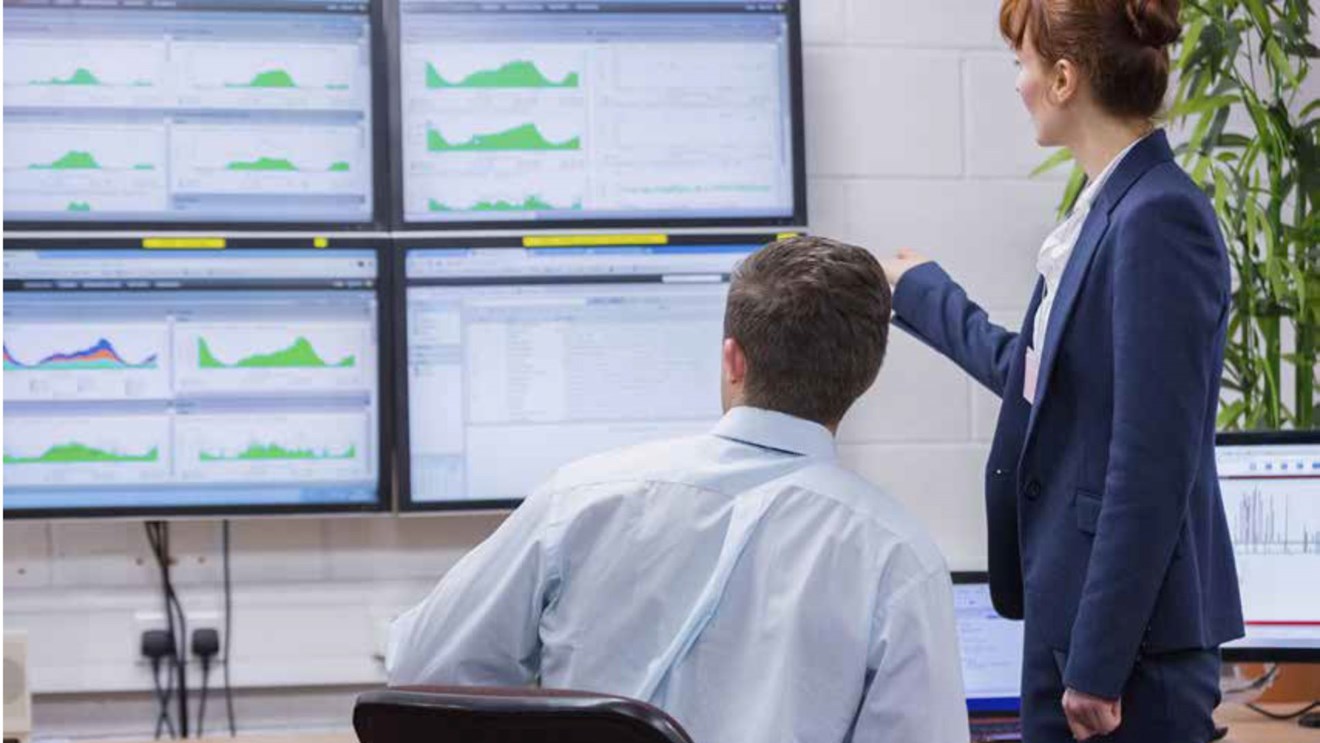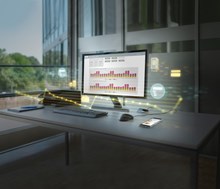Siemens has collaborated with Oracle, a global strategic cloud provider, on a high-performance processing solution that will help energy suppliers to better manage the substantial data processing demands that will come with market wide Half Hourly Settlement (HHS).
The automated solution leverages Oracle Cloud Infrastructure (OCI) to query and process readings from smart meters in 30-minute intervals in homes and small, non-domestic sites, helping to facilitate the transition to the smart grid. To date, volume and performance testing has been successfully conducted to 1.5million meters, but the Siemens application and OCI can scale well beyond this as the industry transitions to an event-driven architecture.
Ofgem, the government regulator for gas and electricity markets in Great Britain, confirmed plans for market-wide Half Hourly Settlement (HHS) in 2018 across the retail electricity market. The move, scheduled for completion by October 2025, is expected to unlock unprecedented levels of investment and innovation across the energy sector; accelerating the rollout of more personalised customer tariffs and ‘energy-as-a-service’ offerings which leverage the growth of renewable energy generation. The energy watchdog has calculated the successful implementation of HHS could save consumers an estimated £1.6bn to £4.5bn by 2045*.
Domestic half hourly data collection will provide energy suppliers with complete transparency about the electricity usage of their customers. This transparency, combined with associated cost reflective mechanisms across the energy value chain, will enable energy suppliers to offer more innovative and richer energy products to help customers lower their bills, such as time-of-use tariffs, vehicle to grid and on-site renewable and battery storage solutions. However, uptake during this elective phase has been slow, with many suppliers preferring to continue to settle meters non half hourly. The switchover and the monumental task of taking meter readings every half hour from millions of customers will place new pressures on current data processing infrastructures, something that Siemens’ suite of solutions and processing power on OCI looks to offset.
Energy suppliers, established and new, are going to face different challenges noted Nick Jones, Half Hourly Settlement Lead, Siemens: “To date elective half hourly settlement has been led by a number of technology-driven energy suppliers determined to develop a range of innovative energy services, but across the wider industry uptake has been low. It’s vital that suppliers use the elective phase to test and learn. Managing the increased volume of data will be a challenge for many suppliers, which is why we’re urging retailers to work with partners now, both at speed and scale, to understand the opportunity interval data presents.
“As a global technology player, Siemens has supported smart metering programmes across the world. We have class-leading meter data management software, significant experience in machine learning and patented models that can help energy suppliers to better predict energy prices, energy generation, and energy demand. In addition to our core new elective service, we have a range of capabilities that can help energy suppliers to build their half hourly business cases. We’re saying to suppliers, trial our solution and let us help you on your journey towards energy-as-a-service capabilities. Just over four years seems a long way off but we’re already working with suppliers to do this and the period between now and 2025 is crucial for energy suppliers to unlock that additional value, learn fast, and compete more effectively.”
Powered by Oracle Cloud Infrastructure, the new elective capability from Siemens is highly automated and scalable. Including the highest levels of security, the elective capability has been initially tested to a throughput of 1.5m meters, although the roadmap for the product sees the management of significantly greater volumes through Oracle Cloud. Complementing the elective offering is a range of advanced analytics tools. The Settlement Analytics tool processes register and interval data then applies in depth analytics to expose the ‘real’ costs of settlement options at an MPAN level. Time of Use Profiler segments customers by their energy usage for developing bespoke tariffs. Finally, a Neural Network Load Forecaster leverages patented models to give energy suppliers a head start in machine learning approaches to energy forecasting.
“Smart meters are a critical component in helping to drive a more sustainable future,” said Richard Petley, senior vice president and managing director for Western Europe at Oracle. “They are providing vast amounts of data, and it’s vital that energy suppliers are analyzing this information to help better manage their operational costs and the energy network. Oracle and Siemens are collaborating to bring the high-performance computing power of OCI to the smart grid to help enable energy retailers to gain valuable insights from the HHS data Siemens is providing.”
Jones concluded: “Mandated Half Hourly Settlement will create exponential growth in meter data for energy suppliers to manage at a time when personalized tariffs and energy-as-a-service will be mainstream. The Elective phase presents a critical opportunity for energy suppliers to test new approaches and understand the benefits of half hourly settlement before the mandate starts.”
Siemens has 20-years of experience in machine learning from smart metering and distributed generation projects around the world, covering domestic energy consumption, energy prices, solar installation projects, and wind turbine projects. It is a global leader in meter data management technology with Gartner regularly positioning energyIP as market-leading in its Magic Quadrant. As a globally supported product, energyIP is contracted to support 90 million meters, processing more meter readings per year than any other system.
To trial Siemens’ Settlement Analytics capability and help build your elective half hourly business case, or for wider assistance on how our supplier agent services and broader capabilities can fast-track your energy as a service ambitions:
https://new.siemens.com/uk/en/products/energy/metering/half-hourly-settlement.html




